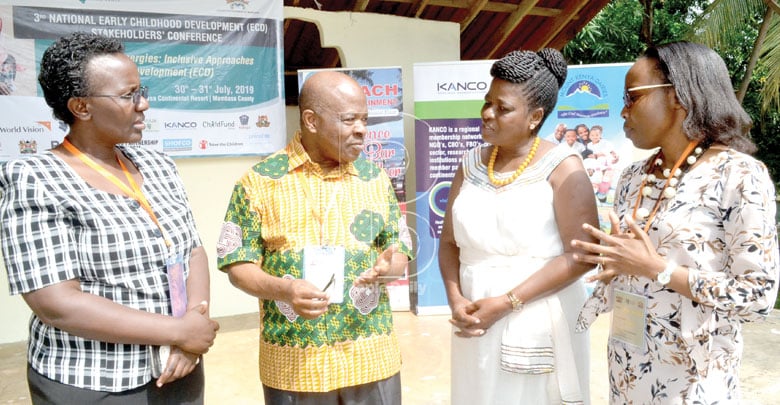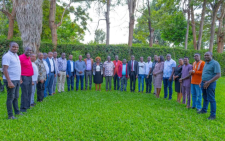Involve parents in ECD programmes, government urged

Reuben Mwambingu and Mathew Karanja
Stakeholders in the education sector have called on Early Childhood Development (ECD) facilitators to shift focus from just training of teachers and building classrooms but instead to pay more attention to provision of support for parents to nurture their children.
With the introduction of the Competency- Based Curriculum (CBC), the stakeholders say, overlooking key factors that support nursery school education could be a recipe for the new curriculum.
Speaking during the third ECD stakeholders’ forum in Mombasa, stakeholders expressed concern that there is a growing tendency by most county governments to put more emphasis on constructing classrooms and other infrastructures but overlooking the software, which entails the basics of nurturing children at early stages.
Early Childhood Development Network for Kenya coordinator Dr Teresa Mwoma, who is also a Senior Lecturer in the Department of Early Childhood Studies at Kenyatta University, said ECD is not limited to education, but also involves health and nutrition for pupils.
Rollout
“I know the rollout of CBC is coming out strongly, with the government-training teachers both in urban and rural areas to equip them with knowledge and skill to handle the curriculum. However, CBC is also having the relevant equipment,” she said.
Mwoma said in some remote parts of the country, children sit on stones in makeshift structures. “If a child is not healthy or well fed, he will not be able to concentrate in class,” she said.
She observed that CBC is designed to help children internalise what they learn in class and become self-reliant, “The competencies may be impossible to realise,” she added.
In a joint communiqué read on behalf of the stakeholders by Partnership Manager ECD Network Kenya, Sarah Mbugua, the stakeholders said, the story of ECD must not end at the delivery room.
“We are cognisant of the fact that child health ensures the survival of the voiceless, but we must go further. Those who survive must also thrive and live to transform. This is how we will change the story of ECD,” Mbugua said.
The forum generated several recommendations, which, the stakeholders said, if properly put into practice, could transform the productivity ECDs programmes. The recommendations include lobbying opportunities for stakeholders to prioritise ECD interventions in the highest political and decision-making platforms.
The stakeholders also appealed for acceleration of sustainable financing in the early years, noting that early interventions have life-long impact. “It is important to note that the first 1,000 days are vital for the future of the child as this is where they mind is growing,” said Prof Kofi Marfo of Aga Khan University.
Marfo said it is imperative that policy makers put into consideration child development in broad view. “Let them plan for child safety, physical security, food and nutrition, among others so that the government and other stakeholders can priorities for the child better,” he said.
Nomadic settlements
Governors have been complaining of poor enrolment of the girl-child in ECDE centres (ECDE) and too few male teachers willing tohandle nursery school children. More than 80 per cent of teachers are women.
“We note with concern the higher enrolment of boys as compared to girls, an issue the county government is addressing,” the governors said last year. Another challenge is low enrolment of children from nomadic, informal settlements, marginalised communities and children with special needs. Rising enrolment has also created pressure on teachers.
Speaking at Kenyatta University during the second National Early Childhood Development Stakeholders Conference themed Accelerating ECD Impact Through Partnerships, the governors said devolved units have incorporated birth registration, provision of vitamin A supplements and de-worming in ECDE centres.
In a speech read by Stanley Baliach, CEC in charge of Education and Vocational Training in Nandi county government, the governors said they have supported the opening of rescue centres, which provides a safe environment for children who are violated
County governments also support the roll out of the Competency-Based Curriculum (CBC) in collaboration with Kenya Institute of Curriculum Development.
“We rolled out the new curriculum design within our ECDE centres. This calls for further investment in capacity building, provision of learning materials and aids and also qualified and competent staffing,” said Baliach.












